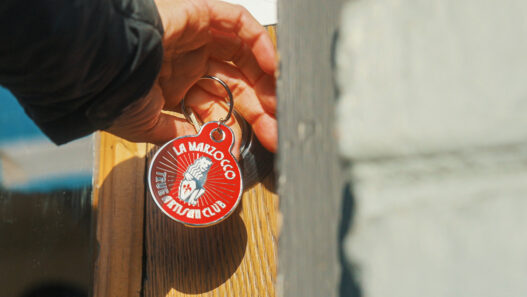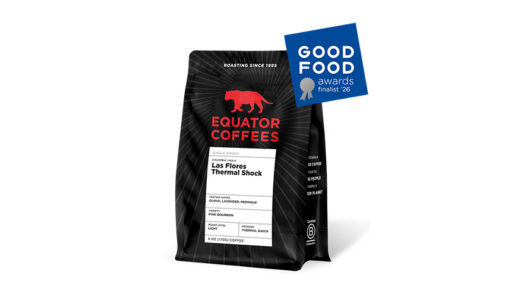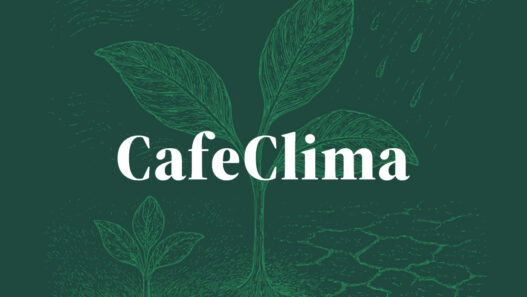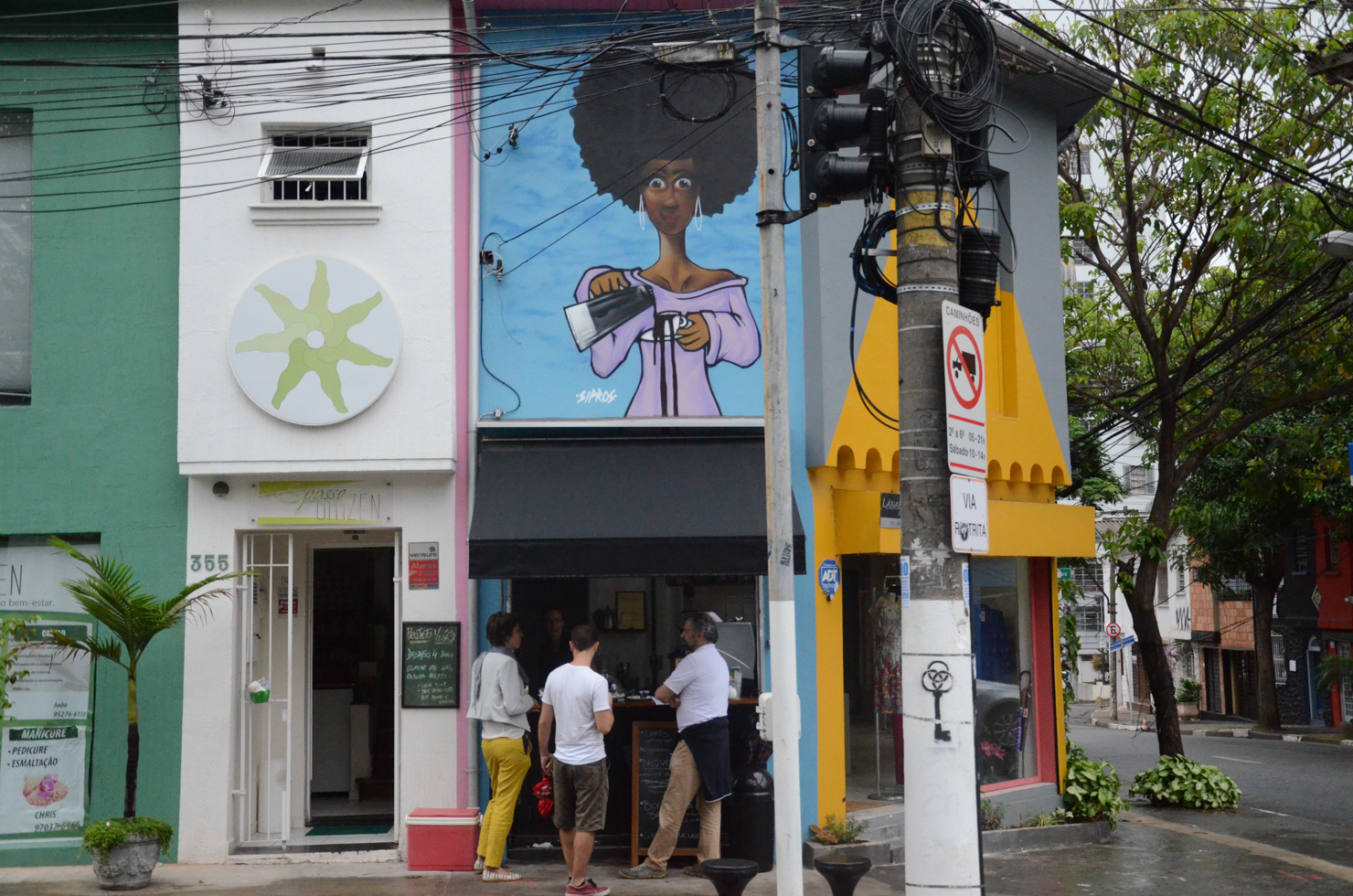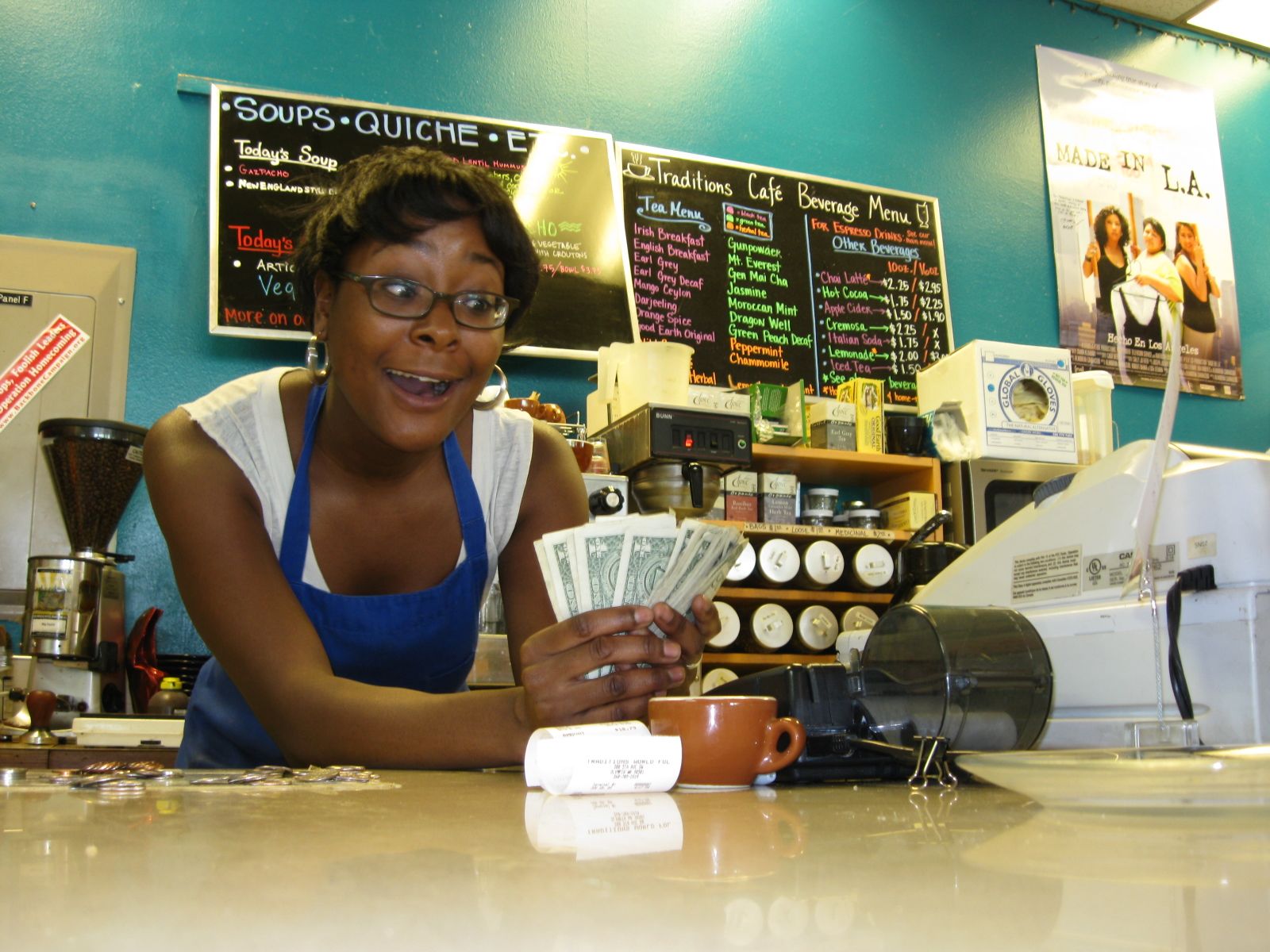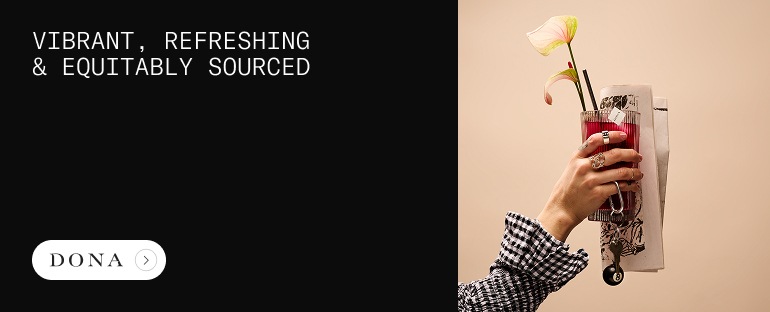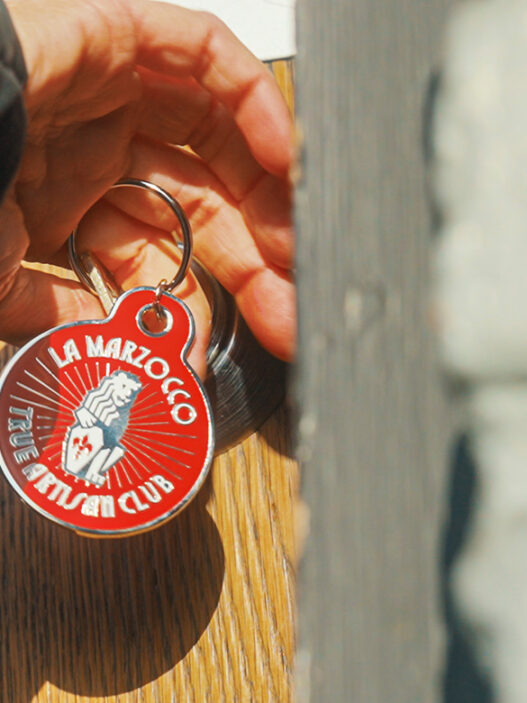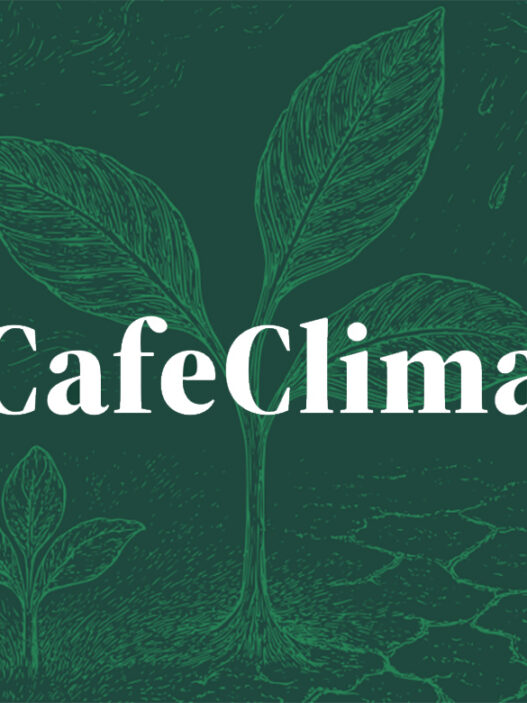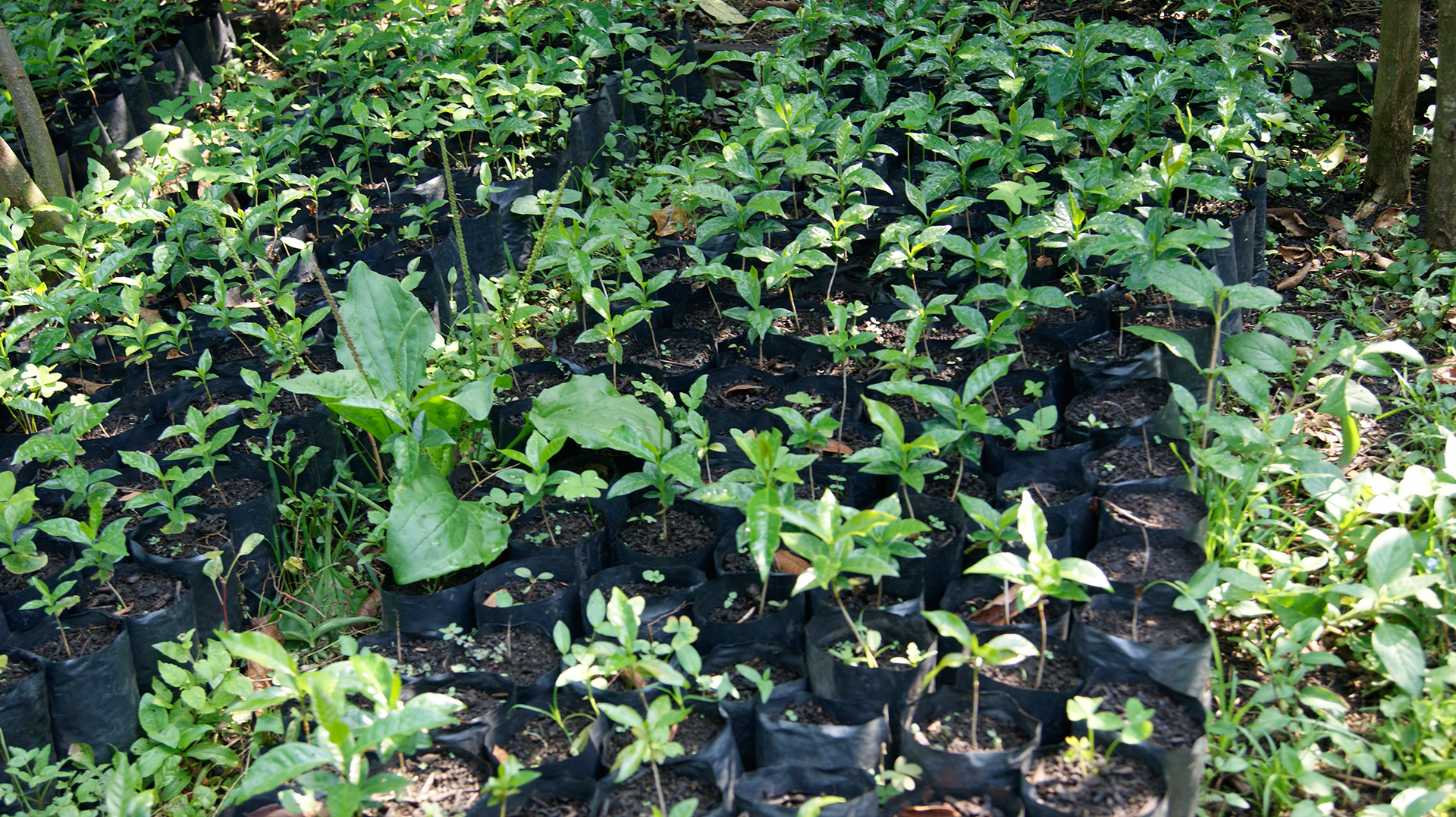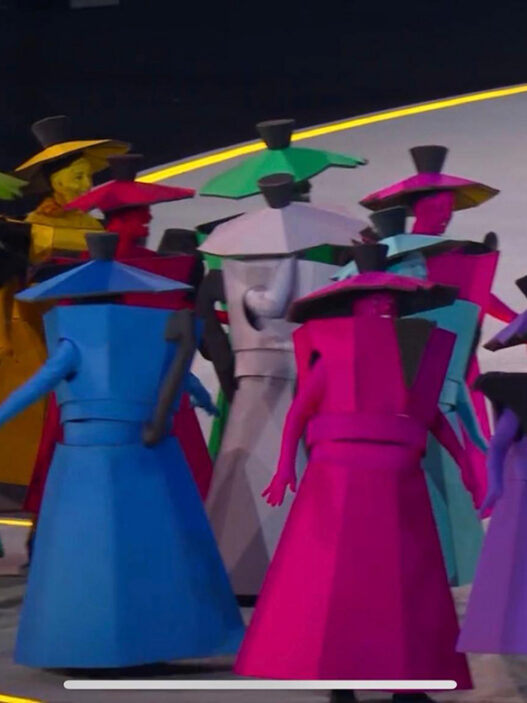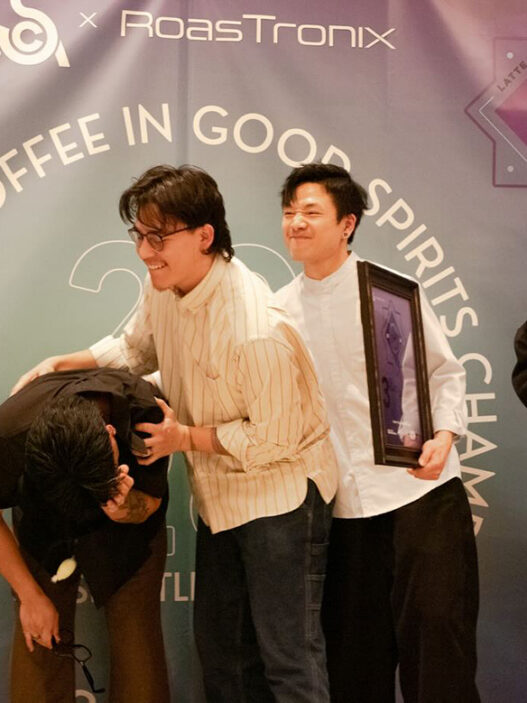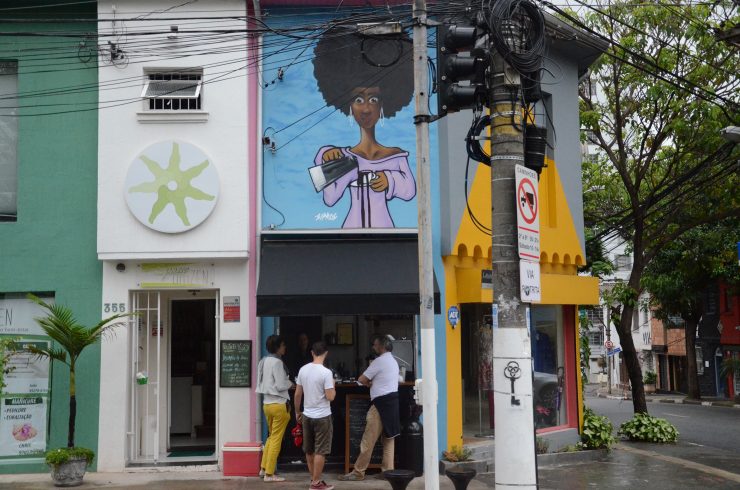
Guinness World Records cites the 1,050-seat Al Masaa Café, in Saudi Arabia, as the world’s largest coffee shop. At the other extreme, the tiniest may well be The Little Coffee Shop, located in the charming neighborhood of Pinheiros, São Paulo. The establishment’s total area is 1.68 square meters—it fits just about two standing people.
Owner Flavia Pogliani is a post-graduate economist who left to study in Sydney, Australia, where she worked as a barista to help with living costs. After getting back to her homeland of Brazil, Pogliani decided she didn’t want to work for the corporate world—and coffee seemed to be the natural next choice. She created São Paulo Coffee Week, a biannual coffee event where coffee shops in São Paulo promote sales and special events to attract the general public and spread awareness of specialty coffee culture.
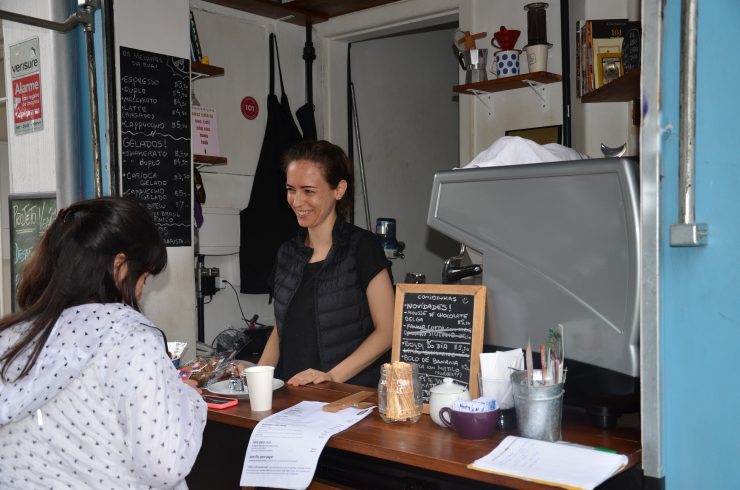
Until then, she was sure that she did not want to open a coffee shop herself, being wary of rent, staff, and tax costs. But one day Pogliani’s mom offered a space that had just become vacant on the second floor of her boutique, on the quaint corner of Lisboa and Artur de Azevendo streets in São Paulo. Pogliani believed no one would go up a flight of stairs just to have coffee, and asked her mom if she could take over one of the boutique’s windows instead. She then rearranged the tiny window space into a coffee shop, which held just the essential equipment for the daily operation. The stairs behind the counter lead to the second floor, where Tom Rodrigues, barista and now Pogliani’s co-worker, produces his True Coffee bottled cold brew—the first in Brazil.
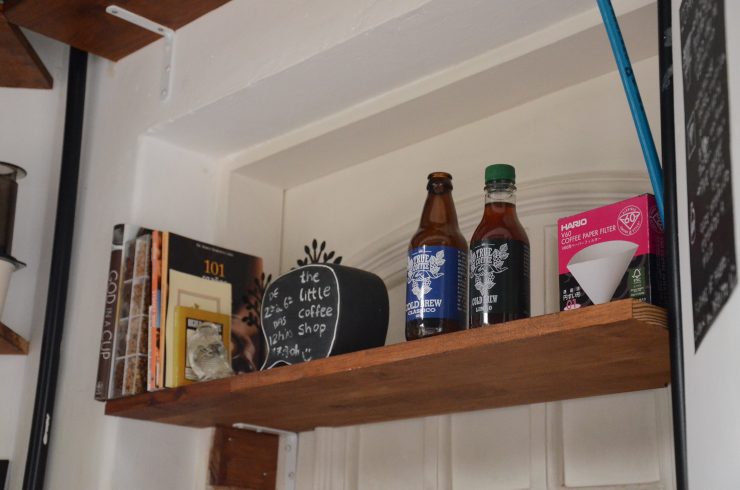
Before opening TLCS, Pogliani spent some days counting the number of passerby on that corner during peak hours, to make sure that there were enough people in the area. Three business plans were laid out: the pessimist’s, the realist’s, and the optimist’s. She thought, judging by the pessimist’s version, that she would be able to close the shop mid-afternoon, go have lunch somewhere, and then return for the remainder of the day. But there’s never been time for that. Since the opening, people line up to taste the delicious—and fairly priced—espresso, brewed with Red Bourbon beans from Baú State and roasted by nearby Sofá Café. Now Pogliani counts on Rodrigues’ daily help operating the Nuova Simonelli Appia Compact during peak hours.
TLCS has no seats and is only open from 12 p.m. to 5:30 p.m. Monday through Friday. There are no filter-brewed coffees available, but Pogliani serves a special drink to make up for that: espresso with a dash of hot water and another of room-temperature water, which resembles the cafezinho drink most Brazilians are used to having at home. Many of the regulars are nearby office workers. When I visited, a prominent magazine that lists the city’s best places to eat and drink had just awarded Pogliani the “barista of the year” prize, and the loyal patrons were celebrating her accomplishment with a bottle of champagne.
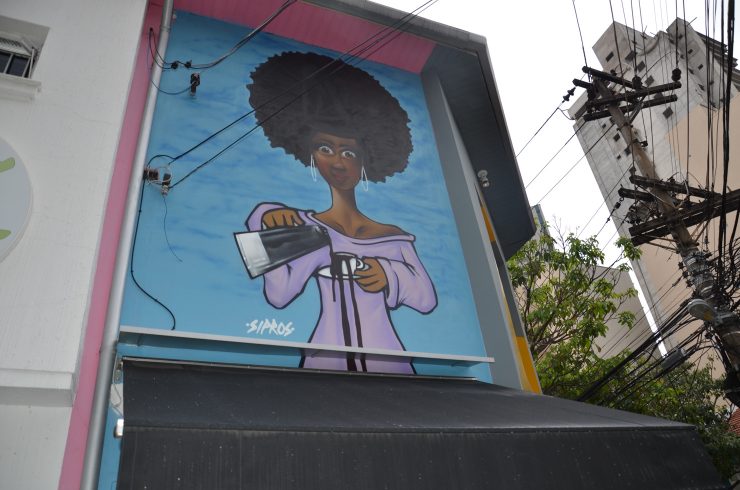
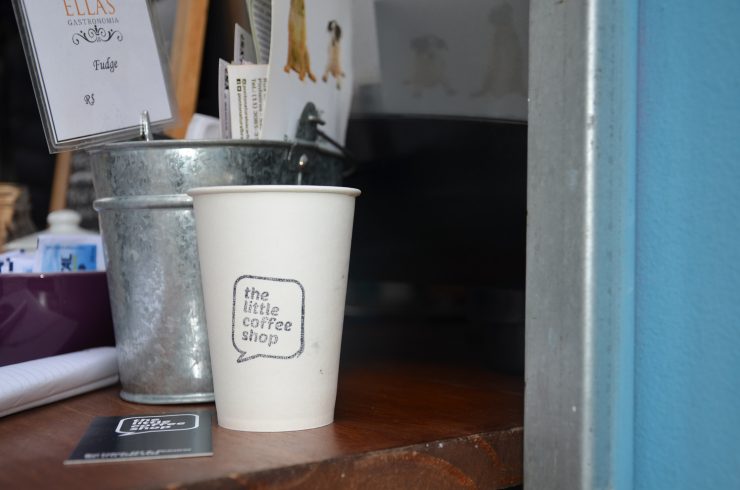
Pogliani applied her economics background in every aspect of the business and as a result has created a lean operation that can easily be replicated. I asked whether there are plans to open another TLCS, but she said said she hadn’t found the right person yet. She wants a quality-focused barista that cares about providing affordable coffee to a local community. Other São Paulo neighborhoods would surely benefit from such a concept, so let’s cross our fingers and hope she finds this person soon.
Juliana Ganan is a Brazilian coffee professional and journalist. Read more Juliana Ganan on Sprudge.




